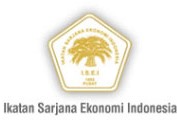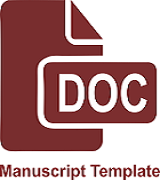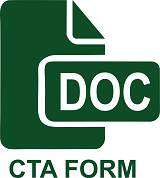MAWAR (Melawan Rentenir): Integrated MSMEs Financial Inclusion Strategy In Sharia-Based
(1) Universitas Dian Nuswantoro
(2) Universitas Dian Nuswantoro
(3) Universitas Dian Nuswantoro
(4) Universitas Dian Nuswantoro
Abstract
Keywords
Full Text:
PDFReferences
Bappeda Semarang City. (2015). Changes to the Semarang City Medium-Term Development Plan (RPJMD) 2016-2021 [Perubahan Rencana Pembangunan Jangka Menengah Daerah (RPJMD) Kota Semarang Tahun 2016 – 2021]. https://bappeda.semarangkota.go.id/rpjmd
Beck, T., Asli, D., & Maria, S. M. P. (2008). Bank Financing for SMEs Around the World: Drivers, Obstacles, Business Models, and Lending Practices. The World Bank, Policy Research Working Paper Series No. 4785: 1-43
Biwado, A. S. (2016). The Role of Bank Indonesia in Accelerating Access to Finance for MSMES through Bank Partner Financial Consultants (KKMB). Delivered at the Bimtek Activity to Improve Marine and Fisheries Group Ability Class, February 16 2016 at Swiss-Bel Ambon Hotel.
Bank Indonesia. (2014). Global Financial Development Report 2014: Financial Inclusion. Jakarta: Department of Development of Access to Finance and MSMES, Bank Indonesia.
Dewi, E. M. (2018). Inbank: Strategi Integrasi Lembaga Keuangan Untuk Penyaluran Kredit Mikro di Indonesia: 1-20.
Fatoki, O., & Asah, F. (2011). The Impact of Firm and Entrepreneurial Characteristics on Access to Debt Finance by SMEs in King Williams’ Town, South Africa. International Journal of Business and Management, 6,
Gunartin. (2017). Strengthening MSMES as Pillars of Building the Nation's Economy [Penguatan MSMES Sebagai Pilar Membangun Ekonomi Bangsa]. Eduka: Jurnal Pendidikan, Hukum, dan Bisnis, 2(2), 46-55.
Hadad, D., (2010) Developing a Financial Inclusion Strategy: The Case of Indonesia. Delivered at the 2010 AFI Global Policy Forum, 27-29 September 2010 in Bali. https://www.afi-global.org/sites/default/files/bi-muliamanhadad-developingafinancialinclusionstrategy-thecaseofindonesia.pdf
Hannig, A., & Jansen, S (2010). Financial Inclusion and Financial Stability: Current Policy Issues. ADBI Working Paper 259. Tokyo: Asian Development Bank Institute.
Herawati, N., Triana L., & Ida B. S. (2019). Application of the Canvas Model Business in Determining the Edamame Fried Soybean Business Management Plan [Penerapan Bisnis Model Kanvas dalam Penentuan Rencana Manajemen Usaha Kedelai Edamame Goreng]. Jurnal Agroteknologi, 13(1), 42-51.
Imama, L. S. (2014). Concept and Implementation of Murabahah in Islamic Bank Financing Products [Konsep Dan Implementasi Murabahah Pada Produk Pembiayaan Bank Syariah]. Iqtishadia, 1(2).
Kara, M. (2013). Contribution of Islamic Banking Financing to the Development of Micro, Small and Medium Enterprises [Konstribusi Pembiayaan Perbankan Syariah Terhadap Pengembangan Usaha Mikro, Kecil, Dan Menengah], Ahkam, 13(2).
Maryati, S. (2014). [Peran Bank Pembiayaan Rakyat Syariah dalam Pengembangan MSMES dan Agribisnis Pedesaan di Sumatera Barat]. Journal of Economic and Economic Education, 3 (1): 1-17.
Mubyarto. (2000). Building an Economic System [Membangun Sistem Ekonomi]. Yogyakarta: BPFE
Najiyati, S., Agus, A., & I Nyoman, N. S. (2005). Community Empowerment on Peatlands [Pemberdayaan Masyarakat di Lahan Gambut]. Bogor: Wetlands International.
Osterwalder, A., & Yves, P. (2010). Business Model Generation: A Handbook for Visionaries, Game Changers, and Challengers. New Jersey: ohn Wiley & Sons, Inc.
Permata, M. I. (2015). The Role of Bank Indonesia in MSMES Development [Peran Bank Indonesia dalam Pengembangan MSMES. Regional Seminar], 4 June 2015 at Jambi University. https://slideplayer.info/slide/5304122/
Perkins, D. D., & Marc A. Z. (2010). Empowerment theory, research, and application. American Journal of Community Psychology, 23(5), 207-218.
Rahaman, M. M. (2010). Access to Financing and Firm Growth. Journal of Banking and Finance, 35, 1-48
Reyes, G. P. (2010). Financial Inclusion Indicators for Developing Countries: The Peruvian Case. Peru: Superintendency of Banking.
Santoso, M.S. (2011). Regional Credit Guarantee Program. [Program Penjaminan Kredit Daerah]. Delivered at the Credit Guarantee Coordination Meeting, 30 November 2011 at Hotel Marina Anyer. https://slideplayer.info/slide/13968736/
Sreeramulu, Shri M., (2013). A Financial Inclusion in India – An Assessment. Mumbai: Reserve Bank of India https://rbidocs.rbi.org.in/rdocs/Speeches/PDFs/ MFI101213FS.pdf
Tjitradi, E. C. (2015). Evaluation and Design of a Business Model Based on the Business Model Canvas [Evaluasi dan Perancangan Model Bisnis Berdasarkan Business Model Canvas]. Jurnal Agora, 3(1), 8-16.
Wahid, A. (2015). The Principles of Empowerment According to the Qur'an: Thematic Study of the Verses of Community Empowerment [Prinsip-prinsip Pemberdayaan Menurut Al-Qur’an: Kajian Tematik Tentang Ayat-Ayat Pemberdayaan Masyarakat]. Syaikhuna, 6(2), 208-22.
Wahyudi, S. T., Khusaini., & Devanto, S. P. (2016). Empowerment of Sharia-Based Micro and Small Enterprises (MSMEs): A Study on the Pusyar Program of the National Amil Zakat Agency (Baznas) in Mojokerto City [Pemberdayaan Usaha Mikro Dan Kecil (UMK) Berbasis Syariah: Studi Pada Program Pusyar Badan Amil Zakat Nasional (Baznas) Kota Mojokerto]. Jurnal Pengabdian Kepada Masyarakat, 22(3), 140-6
Wardhanie, Ayouvi, P., & Deasy, K. (2018). Analysis of the Business Model Canvas at the Surabaya Stikom Institute of Business and Informatics Library in Improving the Quality of Higher Education [Analisis Business Model Canvas Pada Perpustakaan Institut Bisnis dan Informatika Stikom Surabaya dalam Meningkatkan Kualitas Perguruan Tinggi]. Berkala Ilmu Perpustakaan dan Informasi, 14(2), 124-32.
Refbacks
- There are currently no refbacks.

This work is licensed under a Creative Commons Attribution 4.0 International License.






